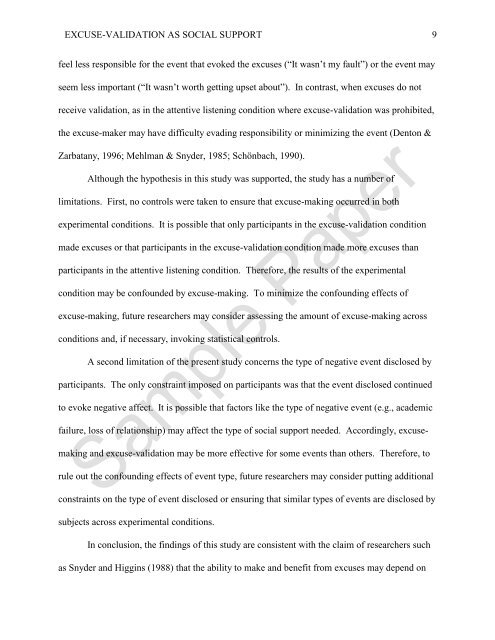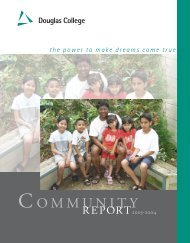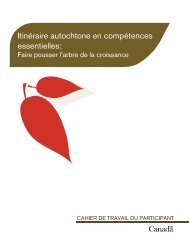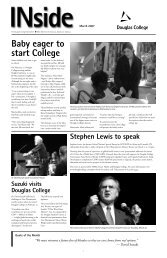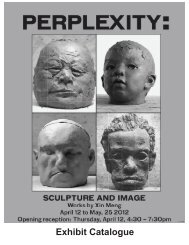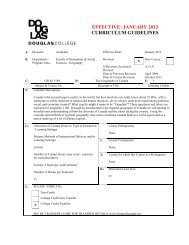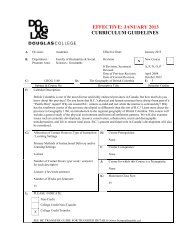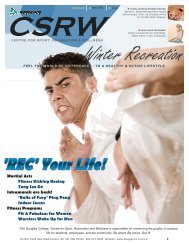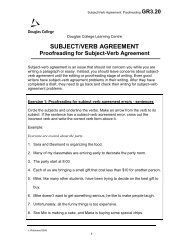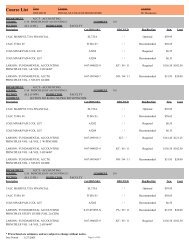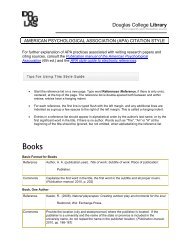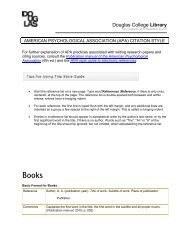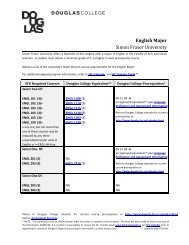An Introduction to APA Style - Douglas College
An Introduction to APA Style - Douglas College
An Introduction to APA Style - Douglas College
You also want an ePaper? Increase the reach of your titles
YUMPU automatically turns print PDFs into web optimized ePapers that Google loves.
EXCUSE-VALIDATION AS SOCIAL SUPPORT 9<br />
feel less responsible for the event that evoked the excuses (“It wasn’t my fault”) or the event may<br />
seem less important (“It wasn’t worth getting upset about”). In contrast, when excuses do not<br />
receive validation, as in the attentive listening condition where excuse-validation was prohibited,<br />
the excuse-maker may have difficulty evading responsibility or minimizing the event (Den<strong>to</strong>n &<br />
Zarbatany, 1996; Mehlman & Snyder, 1985; Schönbach, 1990).<br />
Although the hypothesis in this study was supported, the study has a number of<br />
limitations. First, no controls were taken <strong>to</strong> ensure that excuse-making occurred in both<br />
experimental conditions. It is possible that only participants in the excuse-validation condition<br />
made excuses or that participants in the excuse-validation condition made more excuses than<br />
participants in the attentive listening condition. Therefore, the results of the experimental<br />
condition may be confounded by excuse-making. To minimize the confounding effects of<br />
excuse-making, future researchers may consider assessing the amount of excuse-making across<br />
conditions and, if necessary, invoking statistical controls.<br />
A second limitation of the present study concerns the type of negative event disclosed by<br />
participants. The only constraint imposed on participants was that the event disclosed continued<br />
<strong>to</strong> evoke negative affect. It is possible that fac<strong>to</strong>rs like the type of negative event (e.g., academic<br />
failure, loss of relationship) may affect the type of social support needed. Accordingly, excuse-<br />
making and excuse-validation may be more effective for some events than others. Therefore, <strong>to</strong><br />
rule out the confounding effects of event type, future researchers may consider putting additional<br />
constraints on the type of event disclosed or ensuring that similar types of events are disclosed by<br />
subjects across experimental conditions.<br />
In conclusion, the findings of this study are consistent with the claim of researchers such<br />
as Snyder and Higgins (1988) that the ability <strong>to</strong> make and benefit from excuses may depend on


